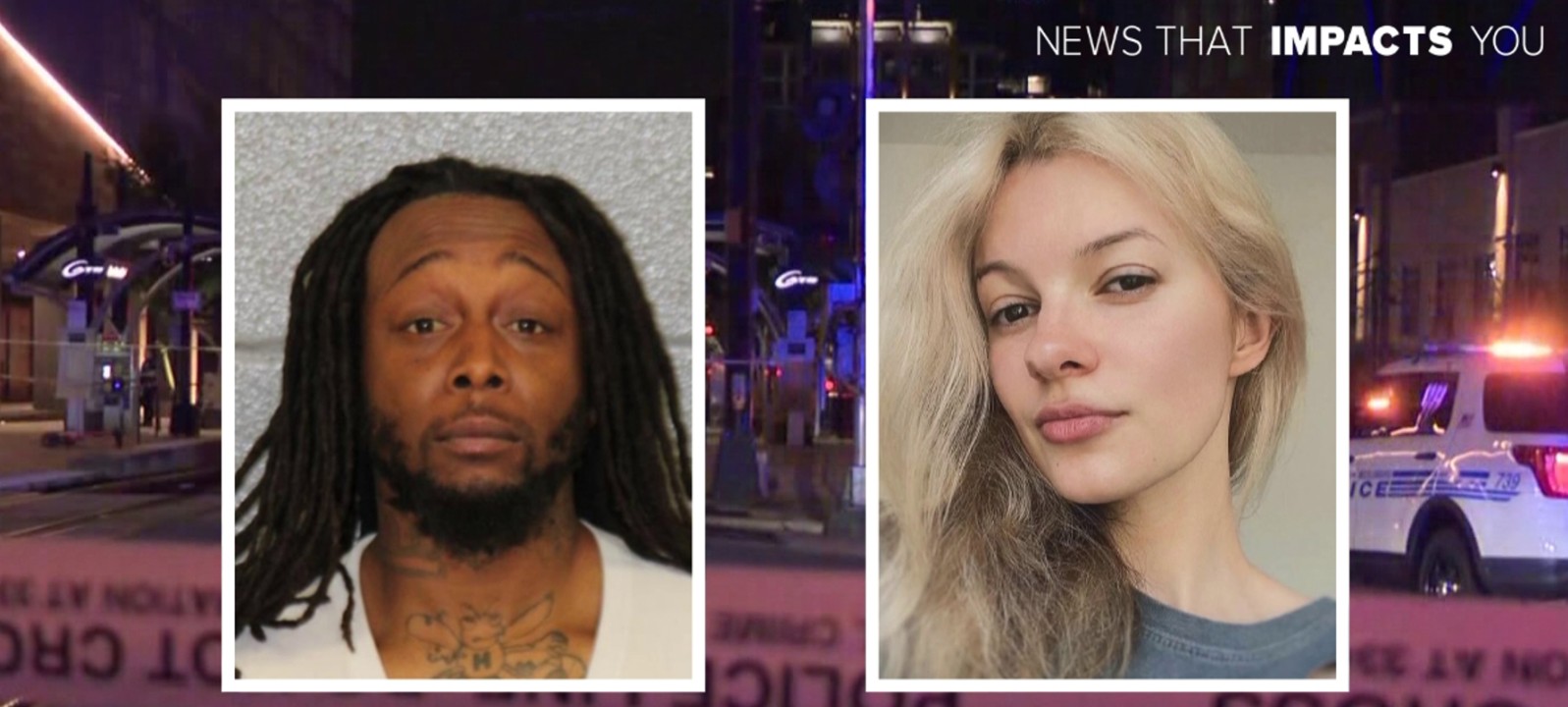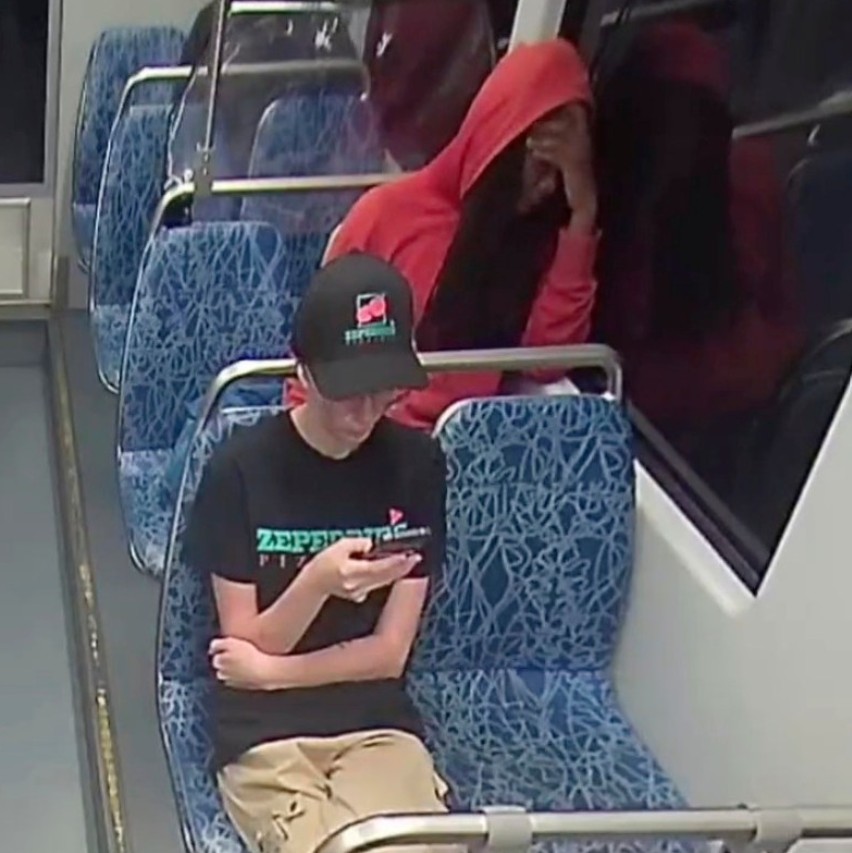Iryna Zarutska Video and Decarlos Brown Jr. in Charlotte
On the night of August 22, a gruesome act of violence unfolded on a light rail train in Charlotte, North Carolina. Surveillance video shows a 23-year-old Ukrainian refugee, Iryna Zarutska, stabbed to death in what police described as an unprovoked attack. The suspect, 34-year-old Decarlos Brown, homeless and long struggling with severe mental illness, has since been charged with first-degree murder.

What might otherwise have been seen as a local crime has turned into a national flashpoint. The FBI is investigating, former President Donald Trump has weighed in, and Charlotte’s mayor has faced heavy criticism. The case underscores not just the tragedy of one young woman’s life cut short, but also the deep cracks in America’s systems of public safety, mental health care, and political discourse.
Contents
A Deadly Encounter on the Light Rail and Video
Shortly before 10 p.m., Zarutska boarded a train in Charlotte’s South End neighborhood. Surveillance footage captured the final moments of her life in chilling detail.
Full uncensored video of the Iryna Zarutska case caused by the assailant Decarlos Brown
She wore a T-shirt from her job at Zepeddie’s Pizzeria, had earbuds in, and was focused on her phone. Seated just a row ahead of her was the man who would end her life. For several minutes, the two appeared to have no interaction at all.
Then, around four and a half minutes after Zarutska boarded, the man later identified as Decarlos Brown reached into his pocket. He unfolded a knife, stood abruptly, grabbed the seat bar with one hand, and stabbed Zarutska with the other.
The young woman curled up, clutching her chest and mouth, her eyes meeting her attacker’s. Seconds later, she collapsed to the floor of the train. By the time police arrived, she could not be saved.
The Life of Iryna Zarutska
For those who knew her, the footage of her final moments stands in stark contrast to the person they remember: full of promise, resilience, and kindness.

Born and raised in Ukraine, Zarutska fled the Russian invasion with her mother, sister, and brother in 2022. They sought safety and stability in the United States, settling in Charlotte. She quickly adapted to her new life, learning English and building friendships in her community.
Zarutska’s obituary describes her as a gifted artist. She had graduated from Synergy College in Kyiv with a degree in Art and Restoration. She loved sculpting, painting, and designing unique clothing that reflected her vibrant spirit.
“She shared her creativity generously, gifting family and friends with her artwork,” the tribute read.
Alongside her artistic pursuits, Zarutska dreamed of working with animals. She enrolled at Rowan-Cabarrus Community College in 2023, aiming to become a veterinary assistant. Neighbors recall seeing her walk their dogs, always smiling, always gentle.
At Zepeddie’s Pizzeria, where she worked to support herself and her family, she was more than an employee she was family. The restaurant posted after her death: “We lost not only an incredible employee, but a true friend. Iryna, we miss you more than words can say.”
A family friend summed her up simply: “She had a heart of gold. She survived the bombs in Ukraine, only to lose her life here. It makes me sick to think she’s gone.”
The Troubled Path of Decarlos Brown
In stark contrast to Zarutska’s story of survival and hope, the suspect’s life was marked by instability, crime, and untreated mental illness.
Brown had at least 14 criminal cases dating back to 2011, including convictions for armed robbery, felony larceny, and breaking and entering. He served more than five years in prison for robbery with a dangerous weapon, released in 2020.

According to his sister, Tracey Brown, he was not the same after prison. He became paranoid, withdrawn, and struggled to hold conversations or jobs. Diagnosed with schizophrenia, Brown often suffered hallucinations and delusions. He told relatives the government had implanted a chip in him and sometimes believed people could read his thoughts.
Family members say they repeatedly tried to get him long-term treatment. His mother obtained an involuntary commitment order after one episode, but because she wasn’t his legal guardian, her efforts often stalled. Tracey said she dropped assault charges against him in 2022, not wanting to criminalize his illness.
Despite their efforts, Brown drifted between jail, hospitals, and homelessness. At the time of the stabbing, he was living in a shelter. Just days earlier, he had stayed briefly with his mother before she returned him to the shelter and went to church, believing he was safe.
When asked by his sister why he attacked Zarutska, Brown chillingly replied: “Because she was reading my mind.”
Legal Response and Court Proceedings
Brown was arrested at the scene and taken to a hospital for a laceration before being booked on a charge of first-degree murder. A judge has ordered a 60-day psychiatric evaluation, underscoring questions about his mental capacity to stand trial.
His family has maintained that Brown’s actions were the culmination of untreated mental illness. “He just snapped,” his sister said. His mother echoed that sentiment, insisting her son was not a violent man at his core but someone who had been abandoned by the system meant to help him.
National Spotlight and Political Reactions
Once video of the attack surfaced, the case quickly transcended local news. Former President Donald Trump denounced the killing, calling Brown a “madman” and vowing federal action against violent crime. “She’s just sitting there,” Trump said, describing the footage as unwatchable in its horror.
The White House accused Charlotte’s Democratic leadership of failing to keep the public safe. Officials argued that lenient courts and inadequate bail conditions left Brown free despite his long record and obvious instability.
Charlotte Mayor Vi Lyles initially faced criticism for a muted response that focused more on homelessness and mental health than on the victim. Days later, she pledged increased police presence on public transit and called for bipartisan reforms to address repeat offenders and untreated mental illness.
U.S. Transportation Secretary Sean Duffy went further, suggesting federal funding for Charlotte’s light rail system could be cut pending investigation. White House adviser Stephen Miller blasted the mainstream media for what he saw as insufficient coverage of the case.
The murder became a symbol in a broader political battle: Republicans highlighting urban crime as evidence of Democratic failure, Democrats urging systemic reforms rather than partisan blame.
Broader Issues: Crime, Mental Health, and System Failures
Beyond the headlines and political finger-pointing, the stabbing highlights deeper systemic failures.
Charlotte-Mecklenburg Police data shows violent crime dropped by 25% in the first half of 2025 compared to the year prior. Yet statistics provide little comfort in the wake of such a brutal, high-profile killing.
Brown’s case exemplifies the dangers posed when mental health systems cannot adequately treat individuals with severe conditions. His family’s testimony reveals years of missed opportunities each one a chance that might have prevented this tragedy.
It also raises difficult questions about repeat offenders. Should Brown have been free despite his record? Could closer monitoring or longer-term hospitalization have saved Zarutska’s life?
As Charlotte Mayor Lyles put it: “We, as a community, must do better for those members of our community who need help and have no place to go.”
Remembering Iryna Zarutska
Amid the political storm, friends and family have worked to ensure that Zarutska is remembered not just as a victim, but as a vibrant young woman whose life held immense promise.
She had survived war, displacement, and the challenge of starting anew in a foreign country. She was excelling in school, working hard at her job, and still making time to care for neighbors’ pets and share her art with those around her.
“She was a sweetheart,” said family friend Lonnie. “She endured bombings every day back home, not knowing if she’d live to see tomorrow. To come here and die this way it’s heartbreaking.”
Rowan-Cabarrus Community College issued a statement mourning the death of their former student. Zepeddie’s Pizzeria shared memories of a beloved coworker. Social media filled with tributes from those who had met her, however briefly.
Her family, shattered by her loss, takes solace in the love the community has shown. Yet they remain haunted by the cruel irony: that she escaped war in Ukraine only to be killed on a train in the United States.
The murder of Iryna Zarutska is at once a deeply personal tragedy and a case study in systemic failure. It reflects the dangers of untreated mental illness, the gaps in America’s criminal justice system, and the way violent crime becomes politicized in the national arena.
But at its heart, it is the story of a young woman an artist, a student, a dreamer whose life was stolen in a moment of senseless violence.
Her death demands more than political rhetoric. It demands a reckoning with how society treats its most vulnerable, whether refugees seeking safety or citizens struggling with mental illness.
Zarutska’s radiant smile and generous spirit live on in the memories of those who loved her. Her story is a reminder of what is lost when systems fail and of the urgent need to ensure that such a tragedy never happens again.
Daily Hot News -Obdulia Sanchez Live Stream Video and Tragedy
Igor Pereira Girlfriend Face Video and Brutal Assault
The Carter Mexican Store Video Viral and Curiosity
Phillies Yankees Couple Fan Video and Public Act at Stadium
Pontus Rasmusson of Bunny Video Leak and Viral Scandal
Mauro Icardi Ifşa Video on Twitter Sparks Outrage
Tanja Makarić and Leon Bailey Viral Video on Twitter
